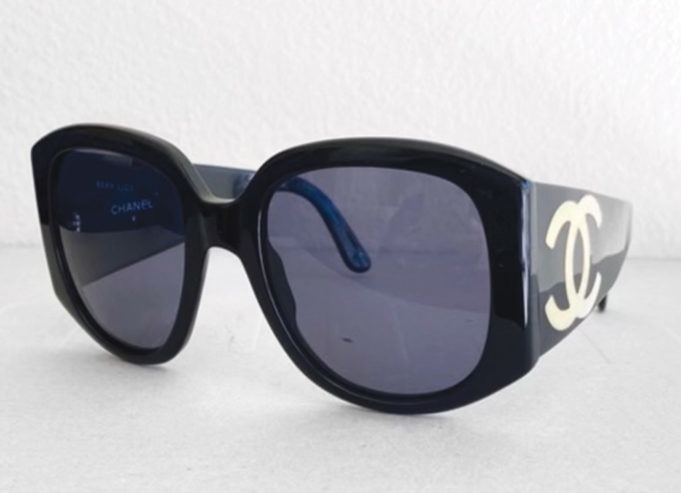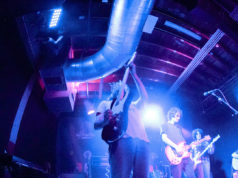I think the best part of Pitchfork’s demise — parent publisher Condé Nast laid off a ton of the music mag’s employees and announced it would be absorbed by GQ (!) — is that Condé Nast Editorial Director Anna Wintour remained on brand while informing the staff of their fate. According to a tweet, newly laid-off Pitchfork writer Allison Hussey said that Wintour “did not remove her sunglasses while she was telling us we were about to get canned.” I like it because it’s the kind of rockstar detail you’d see in a movie about a music magazine, probably right at the end of the first act, the inciting incident in which the unemployed music journalists have to figure out their next move after the fabulous, elegant, ice-cold media powerbroker destroys their careers. Also, this character is played by either Helen Mirren or Will Ferrell.
Regardless of the cast, the reason people would watch this movie is because its plot exists within the frame of “people really loving music.” And that, I think, is why music journalism matters, and why it will never really go away: Humans are captivated by music. We love to experience it, to think about it, to have it rattling around in our brains, sometimes to the detriment of many other, more important tasks. Making sense of music and its effect on our existence does not have an intrinsic value like harvesting grain and baking bread does. Instead, its worth lies in what it does to our minds and souls. Talking about it is a way of finding meaning, even when the discussion is something as granular/asinine-Facebook-comment-thread-y as “Strat is better than Tele” or “jazz is punker than punk.” Discussing what a critic has to say about Bad Brains, Bad Bunny, or Bad Company is us using our intellects for something other than the tedious bullshit required to keep ourselves and our kin fed and sheltered. In the way that the bass in a song makes you feel the music in your solar plexus, reading about music further cements it in your core. Finding out how a song or an album or an artist makes someone else think and feel draws you deeper into your own listening experience.
But our collective listening experience has shifted, and the economics of mass-market music journalism have forced it into a state of continual contraction. In a recent edition of his newsletter, venerable jazz critic and music historian Ted Gioia attributes this contraction to the state of the music industry itself, pointing out that Pitchfork is but one endangered species in the music industry ecosystem. Spotify, Universal, YouTube, Bandcamp, Soundcloud, and Tidal have all laid off employees in recent months. Building up to that is a path to oblivion that began with major labels and other investors buying up the catalogs of established legacy artists rather than spending money on new acts, joined by a streaming-service trajectory that encourages passive listening and AI-generated artists. Gioia’s take on all that: “If people don’t listen to new music, they don’t need new music reviews.”
The thing is, people do listen to new music, after a fashion anyway, because TikTok, Instagram, and YouTube are all still huge platforms. Yet what is the staying power of a song when it has to fight for attention in a channel that is also not specific to enjoying music? In the olden days, the competition among artists for radio airplay was fierce, but they had to contend only with other artists. If you’re a band trying to promote on TikTok, you’re also fighting dozens of other videos in a feed which have nothing to do with paying attention to a guitar solo. Imagine Limp Bizkit trying to break through in a medium that also has pugs being adorable and old people playing Skyrim or whatever. Regarding TikTok and those others, I’d say that music journalism is even more vital, if only that it is a way to cut through all the audio-visual clutter.
I think the newly diminished Pitchfork is symptomatic of how the music industry has changed. Think of the dinosaurs — when those behemoths died out, what do you think happened to the creatures that ate the bugs off their backs? I assume such things existed, and if so, when the dinosaurs died out, the Jurassic versions of a cowbird probably weren’t far behind. But local music journalism outfits — like this one, for example — are not lumbering giants crashing through the forest. We are closer to the ground. The artists we cover are people we see in our neighborhoods as often as we see them onstage, and we cover them because they are part of what it is like living in Fort Worth. And that goes for every one of us journalists who work on a local level — whether you’re writing about the scenes in San Antonio or Syracuse, you’re likely doing it because you like it. And the same goes for you readers. Local music writers go to the same shows you do, and they write about your friends’ bands. In a way, we’re chronicling parts of a lot of people’s experience with music, from both sides of the stage, giving you insight into the musicians schlepping their gear back and forth every night, giving them a chance to explain why they riffed how they did on their record or why they write what they write. As long as there are new local bands, there will be local journalists to write about them, and there’s nothing that Anna Wintour — or Spotify or the decades-long demise of major labels — can do about that.












